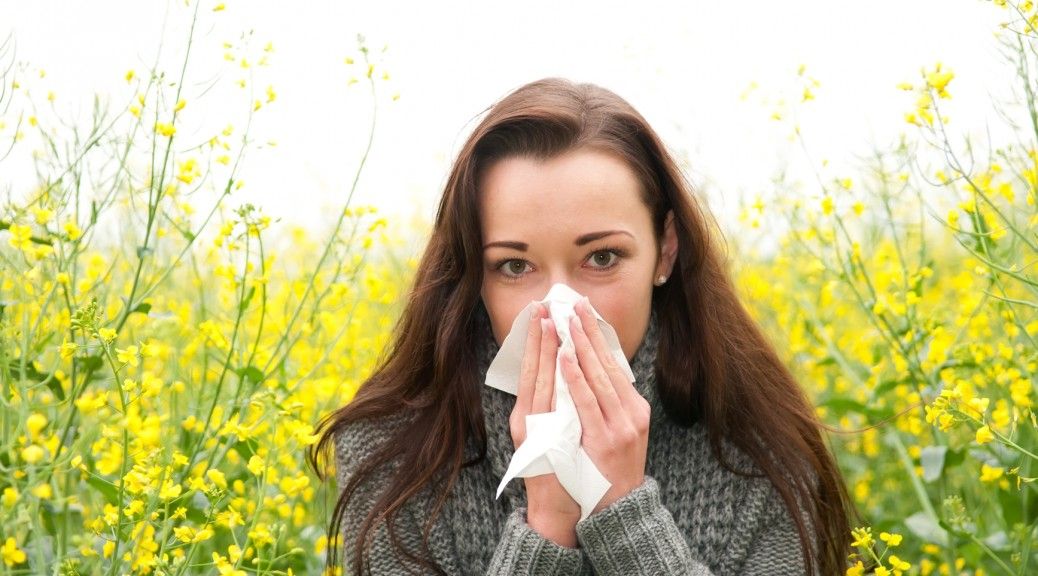
Previous
Protecting Your Liver From Nuclear Radiation

Next
L-Carnitine May Help a Fatty Liver
Spring Allergies and Liver Wellness
If you have liver disease and take any of these five popular allergy medicines to fight hay fever, make sure you know about their potential to stress the liver.
Springtime gives us reason to celebrate, as the more temperate weather brings people outside, delivers sunshine to the snow weary and encourages growth in our environment. Unfortunately, the spring also is the start of allergy symptoms – a fact capable of tarnishing many people’s love of this season. The pharmaceutical industry has made great strides in reducing the discomfort of seasonal allergies, so much so that sufferers no longer dread spring’s arrival. However, allergy sufferers who also have chronic liver disease have an extra consideration. Because drugs often put an additional strain on the liver, those with seasonal allergies must be aware of any impact their allergy solution has on their liver’s health.
About Allergies
An allergy refers to an exaggerated reaction by the immune system in response to bodily contact with certain foreign substances. It is exaggerated, because these foreign substances are usually seen by the body as harmless and no response occurs in non-allergic people. Allergic peoples’ bodies recognize a particular substance as foreign. This exaggerated identification activates an immune response, which we interpret as allergies.
Otherwise known as hay fever, allergic rhinitis is the most common type of allergy and refers to seasonal nasal symptoms that are due to pollens. Symptoms result from the inflammation of the tissues that line the inside of the nose after allergens are inhaled. Adjacent areas, such as the ears, sinuses and throat can also be involved. The most common symptoms, include:
• Runny and/or stuffy nose
• Sneezing and nasal itching
• Itchy ears and throat
• Post-nasal drip
Spring is the most common time of the year for people to experience hay fever. As the weather gets warmer and plants start to bloom, trees and grasses release pollen into the air, triggering allergic symptoms in those who are susceptible.
Popular Allergy Remedies
There are numerous medications available for the treatment of allergy symptoms. In general, a medication that works particularly well for one person may not work for another, especially when the allergy symptoms are different. The following is a description of some popular allergy medications and their associated liver cautions:
1. Nasal Steroid Sprays – A fairly effective way to treat allergic rhinitis, two examples of nasal steroid sprays are Flonase (fluticasone) and Nasonex (mometasone). Those with liver disease must discuss Flonase suitability and dosage with a physician, because the recommended dose assumes that the patient has no large number of fast growing cells that could undergo DNA damage – a potential scenario with liver disease. For those taking Nasonex, higher blood levels of the drug may occur in those with liver disease, which increases the risk of side effects.
2. Anthistamines – Another effective tool against seasonal allergies, antihistamines block histamine, an inflammatory chemical released by the immune system during an allergic reaction. Two popular antihistamines used for hay fever are Zyrtec (cetirizine) and Clarinex (deslaoratadine). Because liver enzyme elevations are known to occur in those taking Zyrtec, its use is cautioned in those with liver disease and reduced dosages are advised. Because it is also processed by the liver, Clarinex carries a similar warning.
3. Leukotriene Inhibitor – This prescription medication prevents seasonal allergy symptoms by blocking allergy mediating chemicals called leukotrienes. The flagship leukotriene inhibitor is Singulair (Montelukast), which is often prescribed together with an antihistamine. Despite this drug’s effectiveness for controlling allergic symptoms, Singulair has been associated with liver damage – especially in those with pre-existing liver disease.
Just because the drugs described above carry serious cautions for those with chronic liver disease, it does not mean affected allergy sufferers must surrender to hay fever. Instead, this information indicates a need to communicate with physicians about your desire to sail through spring without allergic rhinitis while simultaneously putting the least possible strain on your liver as possible.
http://allergies.about.com/, Spring Allergies, Retrieved February 20, 2011, about.com, 2011.
http://allergies.about.com/od/faq/f/arbestmeds.htm, What is the best medication for allergies?, Daniel More, MD, Retrieved February 20, 2011, about.com, 2011.
http://www.drugs.com/flonase.html, Flonase, Retrieved February 20, 2011, Drugs.com, 2011.
http://www.drugs.com/cons/nasonex.html, Nasonex, Retrieved February 20, 2011, Drugs.com, 2011.
http://www.drugs.com/sfx/singulair-side-effects.html, Singulair Side Effects, Retrieved February 20, 2011, Drugs.com, 2011.
http://www.health-care-information.org/drugs/Flonase.html, Generic name: fluticasone, Retrieved February 20, 2011, Health-care-information.org, 2011.
http://www.mayoclinic.com/health/allergy-medications/AA00037, Allergy Medications: Know Your Options, Retrieved February 20, 2011, Mayo Foundation for Medical Education and Research, 2011.
http://www.medicinenet.com/allergy/article.htm, Allergy/Allergies, Alan Szeftel, MD, FCCP, Retrieved February 20, 2011, MedicineNet, Inc., 2011.
http://www.rxmed.com/b.main/b2.pharmaceutical/b2.1.monographs/CPS-%20Monographs/CPS-%20%28General%20Monographs-%20Z%29/ZYRTEC.html, Zyrtec ®, Retrieved February 20, 2011, rxmed.com, 2011.






